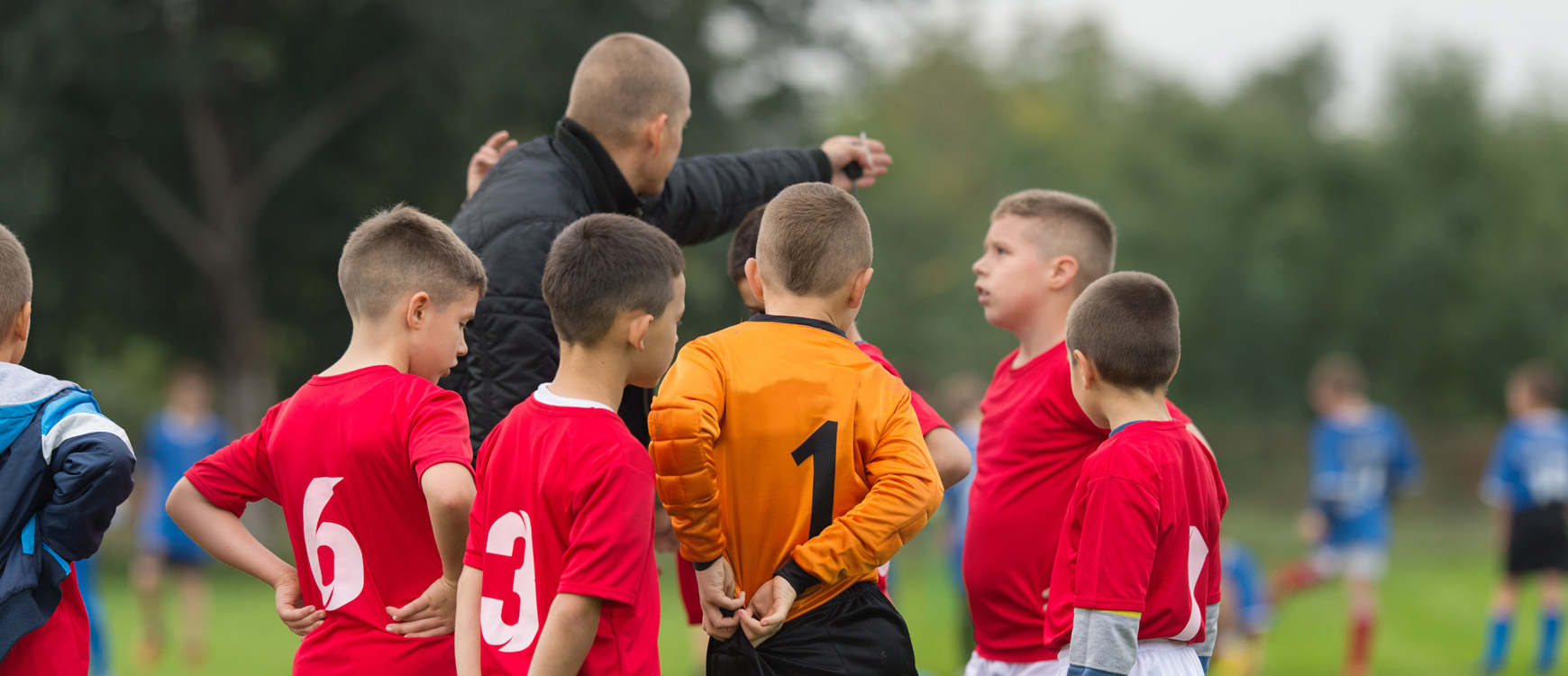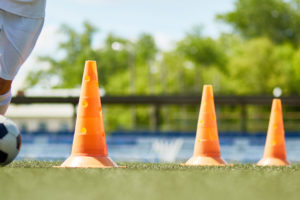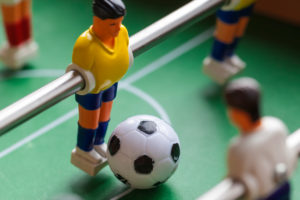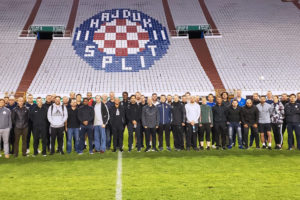
Parents complain about a lack of individual attention for their child in team training
Many parents spend extra money on individual training sessions for their children outside the club context. They try to compensate for – what they think is – a lack of individual attention for their children during the club training. Parents consider this to be a threat to the development and, consequently, for the future (scholarship?) of their kids. That is why they decide to spend extra money on individual training. But is it really individual football training or just ‘alone’ training?
Football actions or non-contextual actions?
Do these extra training sessions improve the football ability of youth players? And what is the content of these additional sessions? Do players improve their football actions or just non-contextual (inter)actions with the ball? A football action has three phases: communication, decision making and executing decision. This will not be developed in a training session during which a player will train with an individual coach on his own without teammates and opponents. So, when the player is training ‘alone’ outside the team context, he is not developing football actions but non-contextual actions.
What is the training load?
And what is the training load on the player during these ‘alone’ sessions? Does the individual coach take the training load at club level in consideration or will he just push the player independent of the training load during the rest of the week? So, if the player is training extra ‘alone’ outside the team context, he might accumulate fatigue from week to week and from month to month which will slow down the nervous system. The signal from the brain to muscles will travel slower. This will significantly increase the injury risk and put the football future of the child in jeopardy.
Winning or developing?
What makes the above situation even worse is the fact that, unfortunately, many people focus on winning in youth football. For example, parents use winning and trophies to build social status within their families and communities, and they use it to brag about their children at work. On the other hand, coaches perceive winning as a confirmation of their coaching ability. Although they only coach 10- or 12-year old children, they still focus on winning and trophies to develop their professional status and to use it as a stepping stone to a bigger club or a higher salary. However, in youth football the development of the football ability of children should be the priority and winning should only be a possible outcome.
So, it is time to put the phenomenon ‘individual training’ in perspective. I will do this in an objective way. In other words, I will use the characteristics of the game (which are the same for all players and coaches) as the reference.
The best possible team player
In football talent development it is not about the individual development to become the best possible individual like in individual sports such as track and field. For Usain Bolt, it was about his individual development to become the best possible individual. So, he did not need anyone else to train with. He was training ‘alone’ focusing on improving his individual abilities independent of anyone else.
In the TEAM sport football, it is a different story. Youth football players have to become experts in 11v11 as this is ultimately the platform where scouts will determine the future of the talented youth player. In the 11v11 context, communication is of the highest order. The (mis)communication between players can make or break the individual performance of players. This is why even Lionel Messi looks like a different player with Argentina compared to being the best player in the world with FC Barcelona.
This means football talent development is about the ‘individual development to become the best possible team player’. So, if a player is training ‘alone’ outside the team context he is not developing in the context of becoming a better team player. He is developing into a better individual which is not automatically the same as a better team player. This transfer of training effect from one to the other is only an assumption.
A football player is a ‘relative’ individual
In an individual sport like track and field, the sprinter Usain Bolt was an ‘absolute’ individual. His success totally depended on his sprinting ability. He did not need anyone else to be successful. In
Individual training within team training
During the specific courses I deliver on ‘Individual Training within Team Training’ I, first of all, explain the above objective football references in more detail so coaches can download them in their brain. This will increase their chance of better quality thinking and coaching in the future in the context of individual training.
Next, I teach coaches how to develop individual players within the team context so nobody will ever complain about a ‘lack of individual attention’ again. First, the universal Football Action Analysis Model is introduced which allows coaches to analyze the actions of individual players in detail. Coaches will practice the application of this model when analyzing the actions of individual players when watching many training clips. Finally, a methodology will be presented based on which coaches can improve individual players without compromising the quality of the team training.
After participating in this course, coaches will also be able to better explain to parents – who are willing to invest more money in the football development of their children – that it would be better to spend this on better quality training in the club context rather than on poor quality ‘alone’ training outside the club.


